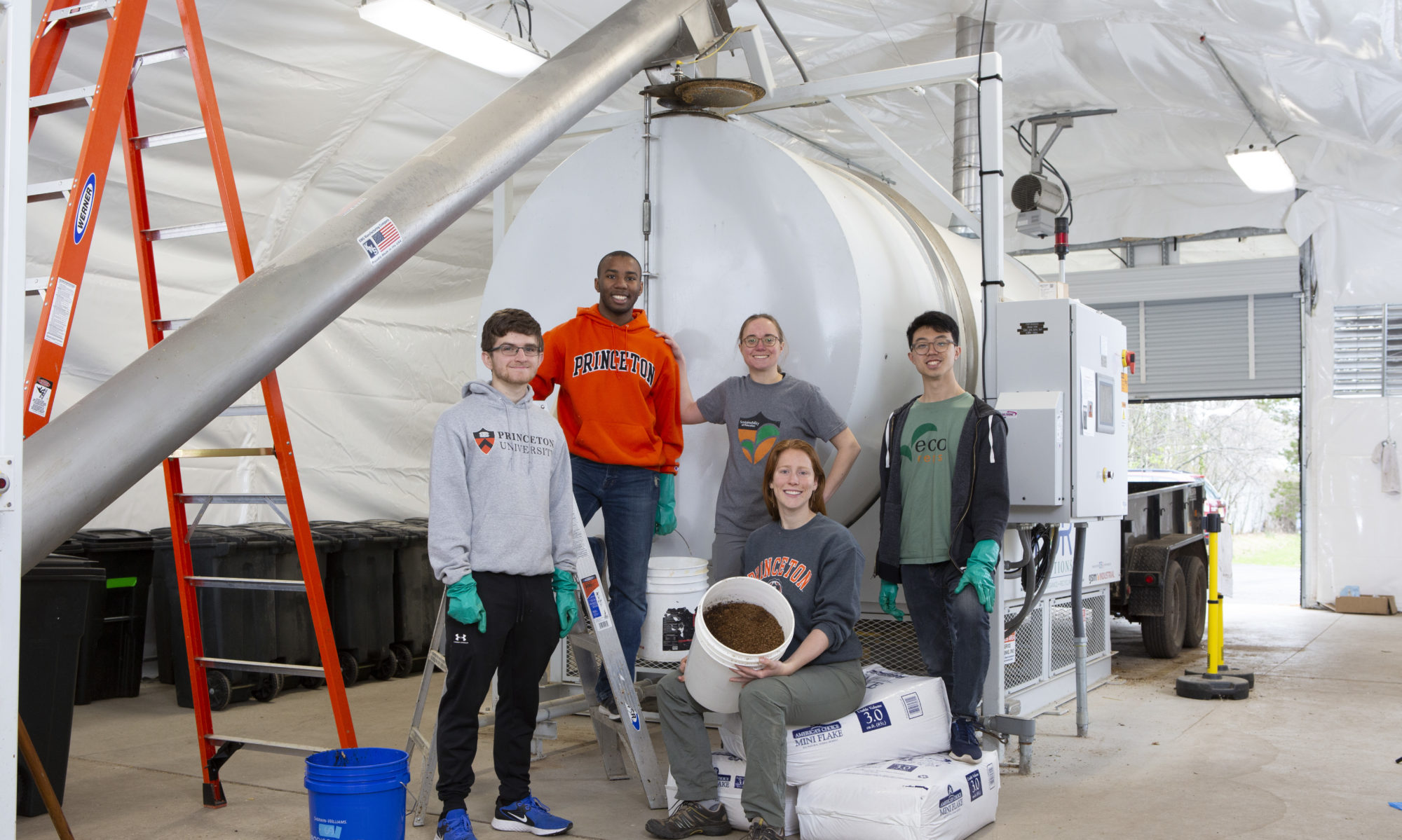Hello folks,
2023 has been off to a great start, beginning with our annual “Black Gold” Behind the Scenes Composting tour of the S.C.R.A.P. Lab for Princeton’s Wintersession.
A diverse group of 15 students, staff, and faculty joined the tour, including an Economics professor, grad students, undergrads, and staff from Facilities to Occupational Health – showing how composting is an activity in which everyone of all backgrounds can engage. It was great to hear that about 1/5 of the group has been composting at home in their backyards which helped foster rich conversation.
Over the course of the 90-min tour, we talked about optimal ways to home compost; composting recipes such as the difference between “greens”/Nitrogen and “browns”/Carbon; compost’s climate impacts; and Gina led a demonstration of the lifter and compost viewing.
Check out some of the sights below:




OPERATIONAL UPDATES
As winter break extended through January, SCRAPPY remained in “auto-digest” mode with compost having a bit longer time to mature inside of the vessel and then we had our first full month of operations once the semester started
8,233 lbs.
The total amount of material composted at the S.C.R.A.P. Lab in February
IN THE NEWS
North American Leaders Make Historic Commitment to Food Waste Reduction among them:
- Committing to reduce methane emissions from the solid waste and wastewater sector by at least 15% by 2030 from 2020 levels and deepen collaboration on waste and agriculture methane measurement and mitigation, including achieving the Global Methane Pledge through trilateral cooperation on methane and black carbon emissions.
- Developing a Food Loss and Waste Reduction Action Plan by the end of 2025 outlining efforts to cut food loss and waste in half by 2030.
One more reason to look for PFAS-free disposables: The Field Report: New Research Shows Dangerous Levels of ‘Forever Chemicals’ in Freshwater Fish. The U.S. EPA is now proposing national drinking water standards for six types of PFAS
ON TAP
- New Student and Staff Profiles
- March Operational Updates
- Coverage from our Re-launch Ceremony
